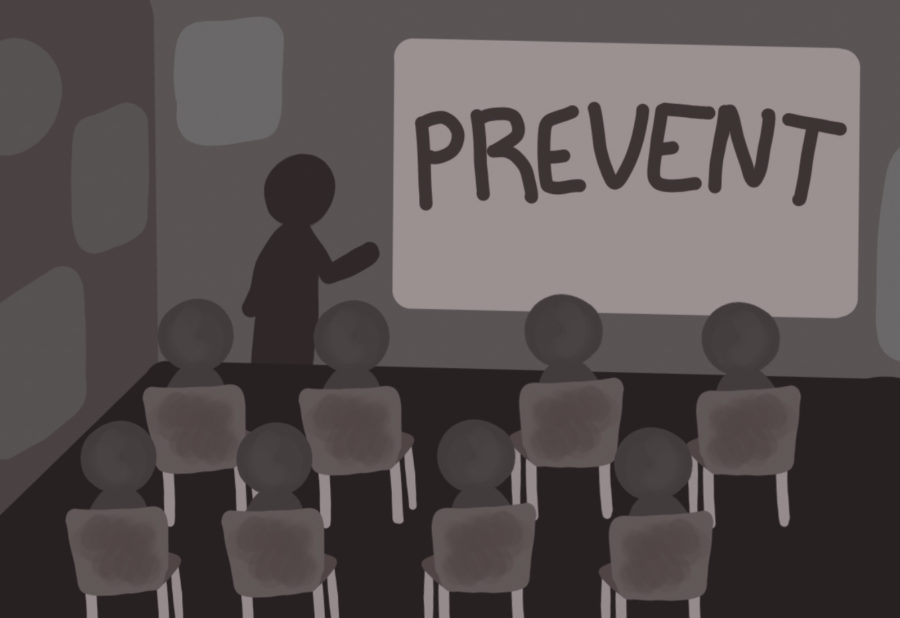Researcher studies sex offenders’ mindsets
Many offenders not scared of punishment, act for personal gain
A researcher says preventative methods of sexual assault are important, but ultimately, rape culture needs to be changed to lower the number of sexual assaults.
April 15, 2021
A WSU researcher has discovered contributing factors to rape culture and is advocating for programs to be implemented in middle schools.
The research focuses on the mindsets of sexual offenders and patterns they demonstrate before committing an assault, said Amelie Pedneault, assistant professor in the WSU Department of Criminal Justice and Criminology.
It is well known that rape is punished severely, she said. For rapists, fear of punishment does not seem to be an issue. Their actions are more about personal gain.
“It seems to be very much about what they have to gain by proceeding with these behaviors that harm other people,” Pedneault said. “It is more about releasing anger or getting sexual gratification.”
The research was conducted through a series of surveys and interviews administered to sex offenders, she said. Clinical treatment files were also analyzed, as well as victim, court and police statements.
Individual factors, such as lifestyles, communities or intimate relationships also contribute to sexual crimes, she said.
Pedneault said results have shown that offenders commit their decisions in a routine manner.
“If they spend a lot of time with their family, then they were more likely to sexually abuse against a family member,” Pedneault said. “If they spend a lot of time out partying, then they were very likely to commit a sexual offense out partying.”
There are also mainstream risk factors that contribute to sexual assault, such as the consumption or abuse of alcohol, she said.
Pedneault said the Centers for Disease Control and Prevention emphasizes that sexual assault should be examined in a sociological model.
The model is used in the prevention of types of diseases, like the flu, she said. The CDC implements a series of steps to prevent or solve an issue. This same methodology has been implemented to help with sexual assault.
Pedneault said sexual assault can have long term, detrimental effects on a person that leaves them at a disadvantage.
In terms of money, a victim of sexual assault is estimated to be depleted of at least $500,000 in their lifetime due to the average number of missed days of school, missed days of work, a need for therapy and health issues, she said.
“We are now starting to document all the ways in which people that are sexually assaulted experienced worse health outcomes,” Pedneault said.
A mistake that is often made in society is restricting how people think of sexual offenders, she said. For example, people often assume sexual offenders may have a psychological disorder or are “crazy,” which is not necessarily true.
“We need to start realizing the ways in which these individuals are part of intimate groups, they’re part of larger groups and ultimately they’re part of society,” Pedneault said. “Only then do we have the knowledge to impact the individual behavior.”
If the behaviors of the offender are fixed and they are no longer interested in engaging in sexually harmful behaviors, then there will be no victim, she said.
People need to be taught from a young age about healthy relationships and sexuality, Pedneault said. Programs need to be implemented in school districts as early as middle school.
The message itself also needs to be adjusted, Pedneault said. Many adolescents are taught about the negative aspects of sex and the behaviors they should not engage in, such as sleeping with someone while drunk.
Students should be taught what consent and healthy relationships look like, she said. The message taught needs to be more positive.
Pedneault said it is essential to call people out on unhealthy behaviors. If someone makes a rape joke or diminishes consent, it is important to stand up to them.
People can also get involved in assault prevention by being vigilant and watching out for friends and family, she said.
However, preventative methods are limited in how much they can help. Changing rape culture is the most important step to sexual assault prevention, Pedneault said.
She said progress in assault prevention has been slow, but even tiny changes are worth the effort.
“There are really hard days when you study this, but there is also a lot of hope into making things better,” Pedneault said.










